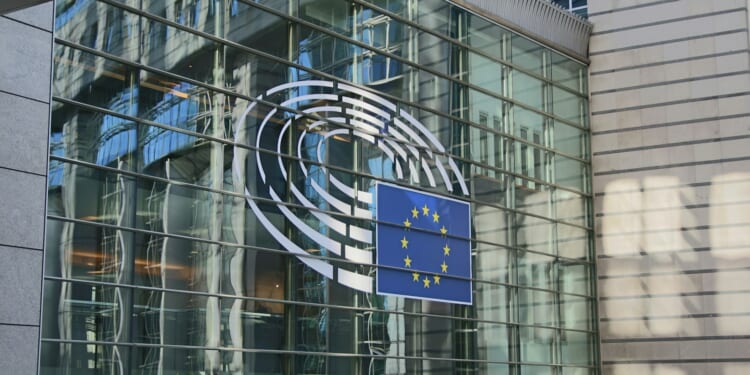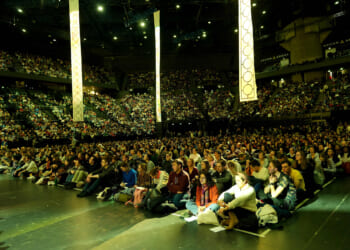Sir John Redwood is a former MP for Wokingham and a former Secretary of State for Wales.
The EU reset is heralded by the Chancellor as reason to expect faster growth for the UK.
She wants to spare her blushes over the ballooning deficit and high interest rates by claiming faster growth will improve the numbers.
If only. If the OBR bases its forecasts on the data in this matter it would make a small reduction to future UK growth from the terms of the proposed re set.
There is first the door slamming shut on prospects to rebuild and grow our fishing industry. Instead of cutting quotas and access for EU vessels, they have been guaranteed the biggest share of our fishing shoals for years to come. We should be offering financial help to build more fishing boats in UK yards and to set up more fishing businesses that can put vessels to sea. This would stimulate the expansion of onshore processing of catches . Instead we free gift a hugely valuable resource and rely on more imports for our own needs.
There is the acceptance that we should submit to all EU laws and regulations governing food and farm products in the hope that our tiny exports of these items to the EU could be boosted a bit by a reduction in paperwork.
The rules are geared to achieve the supremacy of EU produce and will further their aims of increasing their already high import penetration of the UK market. They have a much higher level of food exports to build on. The UK could instead adopt better rules and ways that encourage the right kinds of innovation in the sector here at home. Selective breeding, the use of drones and sophisticated farm machinery, and better collection of data and its use can transform productivity and help us feed ourselves. The government just runs down farming, removes the grants and increases the taxes, so we are bound to lose out to the EU as they gain more control over us.
The EU food package will also want us to continue high tariffs on imports of meat, dairy and other important items from non-EU sources. Tariffs reinforce rules to ensure we buy Irish beef rather than American and Latin American, and buy EU dairy to the exclusion of others. This means UK consumers pay more for foods we are not producing for ourselves for no good reason. The current very high beef prices are in part brought about by this self-harming policy.
There is now the wish to have some relaxation of border controls to allow the free movement of younger people. This would likely result in many more continentals coming to live, study, and work in the UK than UK people going to the continent. A majority of the public is making it clear to all politicians that they think the UK has taken far too many migrants in recent years, and needs a much lower rate. We need to build the homes, surgeries, sewers, power stations they all need when adding to our population numbers. Inviting in people to jobs on low wages as many young people would be, imposes extra costs on taxpayers. The costs of subsidised homes, benefit top ups, free health and education services greatly exceed the small amount of tax they will pay. Add in people who come who cannot get a job and it makes the numbers worse.
The public has been more sensible than the experts in the Treasury over growth and migration.
The public wants growth in per capita incomes. They see growth in GDP because we have added more low paid and no pay people as going backwards, as it may well mean a fall in per capita incomes. It means downwards pressure on wage rates as more come in to offer to take low pay. It makes it more difficult for someone settled here looking for a job to find one. It means less investment by UK businesses as they fall back on cheap labour.
A Brexit win was to swap the Erasmus student scheme for the Turing one. Under Erasmus UK taxpayers had to meet large bills for the many EU students who wanted to come and study here, exceeding the numbers wanting to go the other way. Under Turing all the money can be spent on helping UK students. They can also be assisted to go to a good university anywhere in the world, not just in the EU.
It is important not to reverse that.
The UK’s growth rate fell in the two decades after first joining the EU, and it fell again in the two decades after the completion of the single market in 1992. There were a variety of reasons, but no-one looking at the data can see any boost to UK growth from joining or from completing the single market.
I think it was a negative, as the removal of industrial tariffs in the 1970s accelerated the collapse of Uk industry under the competitive assault of the continentals. Growth rates were badly damaged by the collapse of the disastrous European Exchange Rate Mechanism policy they persuaded the government to join as the single market was completed. This century the net zero dear energy policies have speeded our de industrialisation further.
I trust the OBR will not give their forecasts of growth a boost from the proposed reset. They should see the reset wants to lock us back into a system of controls, tariffs and taxes that will be negative for our economy.

















